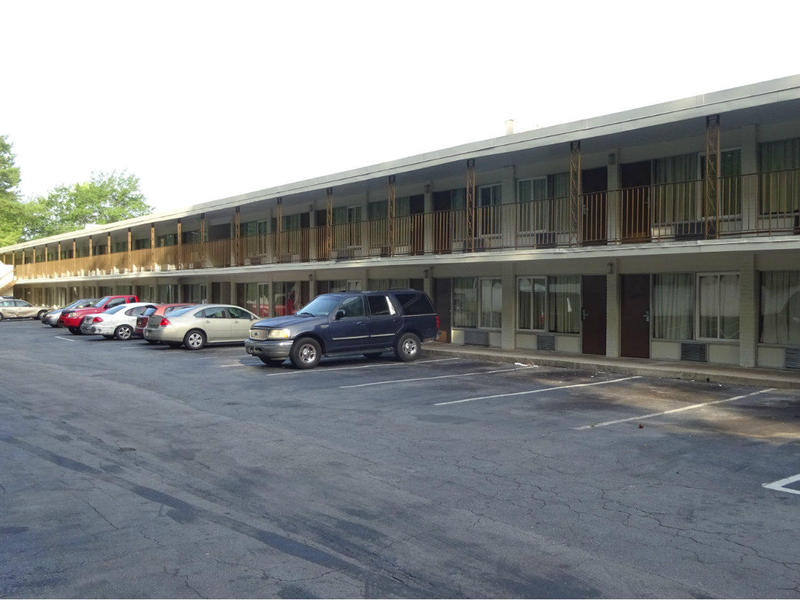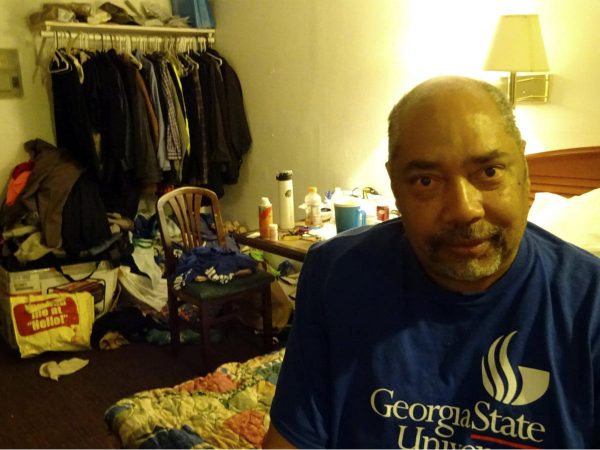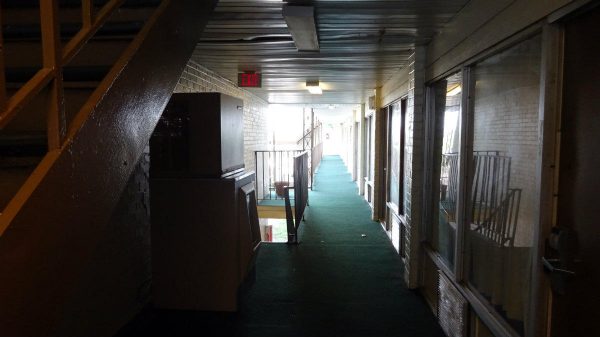Georgia’s New Hotel Tax Creates Confusion, Concern

The Budgetel Inn on Fulton Industrial Boulevard in southwest Atlanta is home to many who are one step away from living on the streets.
Every time someone spends a night in a Georgia hotel, the state collects $5. The charge, which went into effect July 1, is earmarked to pay for state transportation projects.
But the fee is causing confusion, especially for those living in extended stay hotels.
That includes 58-year-old Marshall Rancifer, who fears the tax will fuel a wave of homelessness across Georgia.
Rancifer ended up at the Budgetel Inn off Fulton Industrial Boulevard in January after the house he was renting fell into foreclosure.

For room 248, he pays about $175 a week. The air conditioner is on the loud side, but it keeps things cool. There’s enough room – barely – for a small table, a bed and a kitchenette with a full-size refrigerator.
“I’m glad to have all these things,” Ranficer says. ”A lot of people don’t have this.”
But keeping the room means he’ll have to fork over nearly 20 percent more this month just to cover Georgia’s new $5 nightly hotel tax. That adds up to $150.
“It will put a strain on me,” Rancifer says, noting he can pick up odd jobs to earn the money. But some of those who lived around him haven’t been as lucky. “A lot of these folks have moved out since this tax took effect last week,” he says.
Rancifer also feels the hotel’s management is charging residents the tax, despite an exemption that would apply to most people living there.
According to the Georgia Department of Revenue, people aren’t responsible for the tax if they paid for a room at the same hotel for 30 consecutive days prior to July 1. But if a person moves hotels, the fee resets.
Perplexed?
A lot of folks are, says Jim Sprouse, executive director of the Georgia Hotel and Lodging Association. “There is so much confusion,” he says, especially when it comes to extended stays.
Sprouse says that since the state began collecting the fee last week, he’s spent at least 12 hours a day on the phone trying to help hotel operators sort it all out. He notes it’s not only hotels who call. “Guests are having trouble understanding it,” he says.
The original transportation funding law, HB 170, exempted “extended stays.” But the bill detailed little as to how the exception should be handled. Just days before the law took effect, the Georgia Department of Revenue issued a 12-page emergency order explaining when and how to collect the tax. Sprouse says he’s working with hotels on how better to understand and lawfully implement that order.
But Sprouse maintains that even with more clarity, the tax is a bad deal. He says that’s especially true for Georgians who book millions of hotel nights in their own state.

“That’s $48 million of this tax increase that’s being paid by Georgia residents,” says Sprouse. “That doesn’t match the statement when the bill was passed that the cost of the fee would be paid by guests from out of state.”
Sprouse says he’s especially troubled that much of the new burden falls on extended-stay residents, who in many cases are the least able to pay. Even charities that temporarily house the homeless in extended stays have to come up with the extra $150 for each room.
That troubles Elizabeth Appley, an attorney for the nonprofit homeless advocacy group Georgia ACT. But Appley also is afraid the confusion is allowing extended stay residents to be taken advantage of. To prevent that, she says everyone living in a hotel in Georgia should remember one thing: “If they are living in these hotels for over 30 days, they should not have to pay the fee,” she says.
And those who feel they’re being charged incorrectly should ask to speak to a manager, explain the law, and if necessary, seek outside help from the Georgia Department of Revenue. The department has set up a toll-free assistance hotline at 877-423-6711.
That’s exactly what extended-stay resident Marshall Rancifer did, but he says it didn’t go over so well.
“The manager here, when I was trying to question him about it, said if I didn’t like the way things were, he could just check me out,” recalls Rancifer. In fact, he asked that the front office not be contacted about the issue.
He fears management will kick him out for causing trouble.








